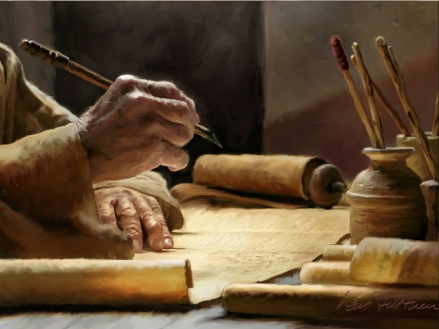
Matthew 8:28-34 "When He came to the other side into the country of the Gadarenes, two men who were demon-possessed met Him as they were coming out of the tombs. They were so extremely violent that no one could pass by that way. 29 And they cried out, saying, “What business do we have with each other, Son of God? Have You come here to torment us before the time?” 30 Now there was a herd of many swine feeding at a distance from them. 31 The demons began to entreat Him, saying, “If You are going to cast us out, send us into the herd of swine.” 32 And He said to them, “Go!” And they came out and went into the swine, and the whole herd rushed down the steep bank into the sea and perished in the waters. 33 The herdsmen ran away, and went to the city and reported everything, including what had happened to thedemoniacs. 34 And behold, the whole city came out to meet Jesus; and when they saw Him, they implored Him to leave their region."
Introduction:
Did Jesus understand Himself to be the Messiah and revelation of God in human flesh? In yesterday's post we considered how Jesus regarded Himself to be no-less than the sole gateway to God, and no-less than God in human flesh by His use of the phrase "truly, truly". The day before we considered how Jesus understood Himself to be on equal par- with God by his phrase: "but I say". Both posts have been exploring Jesus' claims by way of what is often deemed "implicit Christology", meaning we can tell "implicitly" by Jesus' words and actions whether or not He believed himself to be Messiah and God-incarnate. Such activities are "implicit" and, when combined with "explicit" evidence such as His titles (Son of Man for example) and explicit statements (John 14:6), we can gain an accurate picture of Jesus.
In today's post we raise the question again: how well did Jesus understand Himself to be with respect to being the Messiah and decisive revelation of God in human flesh? Demonstrating this to be the case is important, since the Jesus I worship and preach and that Bible believing Christians have staked their trust in must surely be more than another "prophet" or mere "holy-man". Today we consider a third line of evidence supporting Jesus' self-designation as Messiah and God-incarnate, namely His exorcisms.
Jesus casting out of Demons represents an unprecedented demonstration of Divine authority
On at least eight occassions we find record of Jesus casting demons out of people (Matt 8:28,31; 9:34; 10:8; 12:24,27,28 and the associated parallels in Mark and Luke, as well as additional passages). One can comb the Old Testament and not find one example of exorcism. Certainly there were Jewish Rabbi's who claimed to have such abilities (such as Honi the Circle Drawer and Ben Dosa). When one scans the Rabbinic writings, the claim is made that the Jewish teachers derived methods of exorcism extending all the way back to King Solomon.
It is one thing to make claims and build entire traditions around such claims. However, could such claims be verified? The claims hung in the air - but to demonstrate such was quite another matter. When we consider Jesus' actions and teachings - the reaction of critics and crowds alike gives us the first clue that His exorcisms were not mere parlor tricks, smoke and mirrors. Demonic possession was deemed by the Jews and Gentiles alike as hopelessly incurable. Such infestations by the fallen angelic realm could not be cured by conventional means.
When Jesus came on the scene and began doing exorcisms as a regular part of His ministry - He was no less than God Himself in human flesh. I would urge readers to survey the passages I gave earlier to grasp the full scope of Jesus' power and activity. When we add Jesus' exorcisms to the evidence of His use of the phrases: "but I say to you" and "Truly, truly I say to you", we have yet more evidence that Jesus viewed Himself as Messiah and God-Incarnate.
